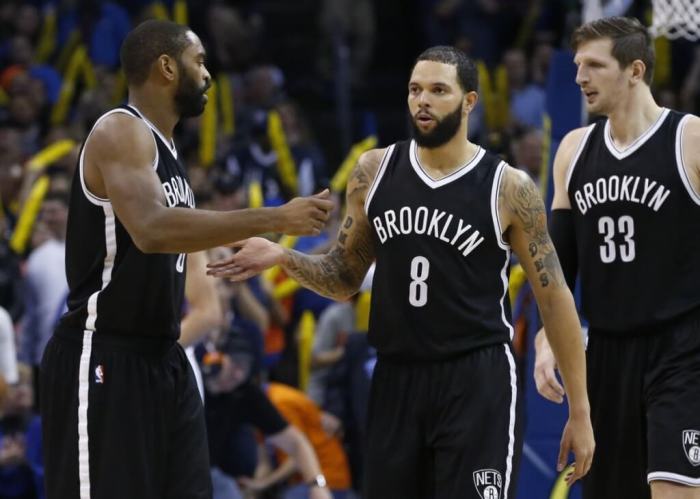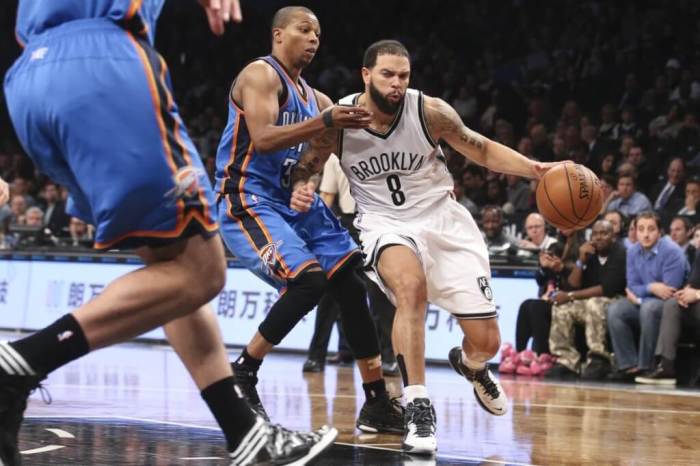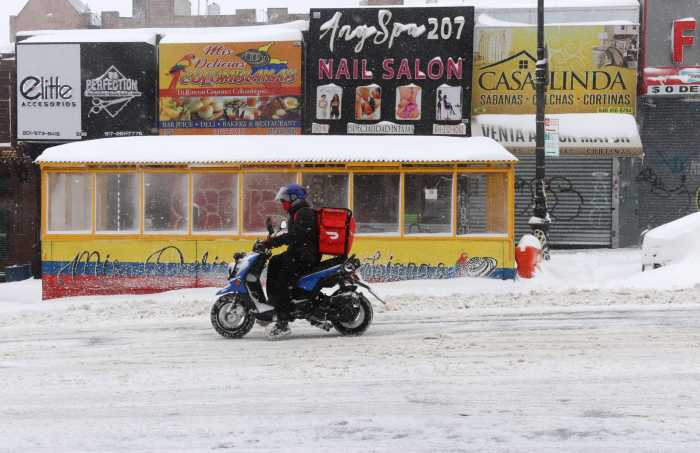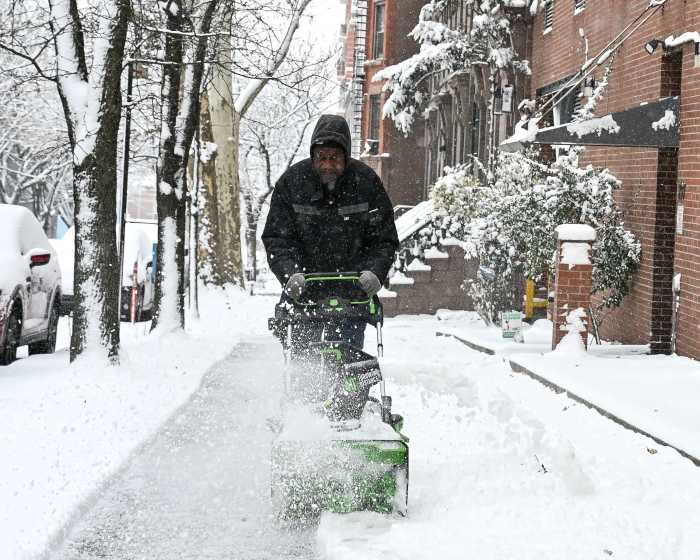Avery Johnson’s decision to “punish” Terrence Williams for violating numerous team policies by demoting him to the D-League has already earned a heaping serving of criticism from writers and bloggers. But for Nets fans, the biggest question will come after TWill first suits up for the Springfield Armor: will he be able to be rehabilitated to the point where he could once again be the player who averaged 14 points, 7 rebounds and 5 assists last March? Simply put, I don’t know.
It’s hard to gauge what might become of TWill, because there’s very little precedent here to make a judgment. As Kelly Dwyer aptly pointed out earlier this week, TWill’s “demotion” seems to be the first case of a player being sent to the D-League as an on-the-record punishment. For an even remotely similar case study of a player with known behavioral history being sent to the D-League by his NBA team, it’s worth looking back at what happened when the Nets sent Sean Williams to the Colorado 14ers during the 2008-09 season. Williams, who like TWill had shown some promise his rookie year, became even more of a behavioral problem after being demoted, getting ejected from games and just generally being a pain in the neck, showing up his teammates and coaches whenever he could. It was so bad, the Nets had to recall him, where he ended up rotting on the end of the bench for another half season before mercifully being released the following year. So for those hoping that the D-League could possibly instill some discipline in TWill during his time in Springfield, the legend of Sean Williams teaches us that it’s really in the power of the player to get his act together. If TWill continues to act a fool in the D-League, he’s either going to be left there by Avery Johnson to rot, or he’ll be recalled just to join Troy Murphy on the inactive list until he’s either traded or released.
So, that’s scenario one. But there is some sliver of a silver lining here. If Terrence Williams suits up for Springfield and gets to work on improving his game – which quite frankly warrants improvement after shooting barely 40 percent and averaging 2.5 turnovers to every 3 assists to start the season – there are some examples of young players who were sent to the D-League and came back as new and improved players. In just the past year, perhaps the two best case studies are Anthony Tolliver and Bill Walker. In 2008-09, his rookie season, Tolliver was sent down to the D-League by the San Antonio Spurs, an organization that takes its relationship with its D-League affiliate very seriously. Tolliver eventually latched on with the Golden State Warriors last season, where he averaged 12.3 points in 30+ minutes per game. Walker, who struggled to crack Boston’s rotation during his rookie year, was sent to the D-League and was eventually picked up by the Knicks where he averaged 11.9 points and 3.1 rebounds in about 27 minutes per game. Granted, both Walker (still in NY) and Tolliver (now in Minnesota) have seen their numbers and playing time slip at the start of this season, at least they were able to improve their games to the point that they warranted playing time on two pretty bad teams last season. It’s something.
Maybe the greatest D-League success story in recent memory is that of Aaron Brooks, the Houston Rockets’ starting PG. After spending part of his rookie season with the D-League, Brooks has emerged into a very solid regular, averaging 19.6 points, 5.6 assists and 40 percent three-point shooting for Houston last year. But again, in all of these success stories, none of these D-League demotions came as a result of a punishment. In all of these cases, these were players that were having a hard time getting playing time with their current teams, and the D-League was used as a resource to help them develop. Also, none of these players came into the league with the expectations of TWill, a lottery pick. The highest profile demotion last season was Hasheem Thabeet, the 2nd overall pick in the 2009 draft. While you could question Memphis’ decision to draft him that high, even after the D-League experience, Thabeet has been a disaster, averaging less than 2 points per game in about 9 minutes of action in the early part of this season.
Overall, I’m not terribly optimistic about TWill’s future with the Nets, nor do I think the D-League demotion was the best way for Avery Johnson and Co. to handle it. Yes, there’s a legitimate shot that Williams can go down to the D-League, work on his jump shot and try to be a playmaker without turning the ball over at such an alarming rate, but there’s nothing I’ve seen from TWill’s character make-up since he’s been in the NBA that suggests he’s going to work as hard as an Aaron Brooks or Anthony Tolliver to get himself back into the league and succeed. I’m obviously hoping for the best, but I’m expecting the worst.


















